Legal reforms to push M&A market forward
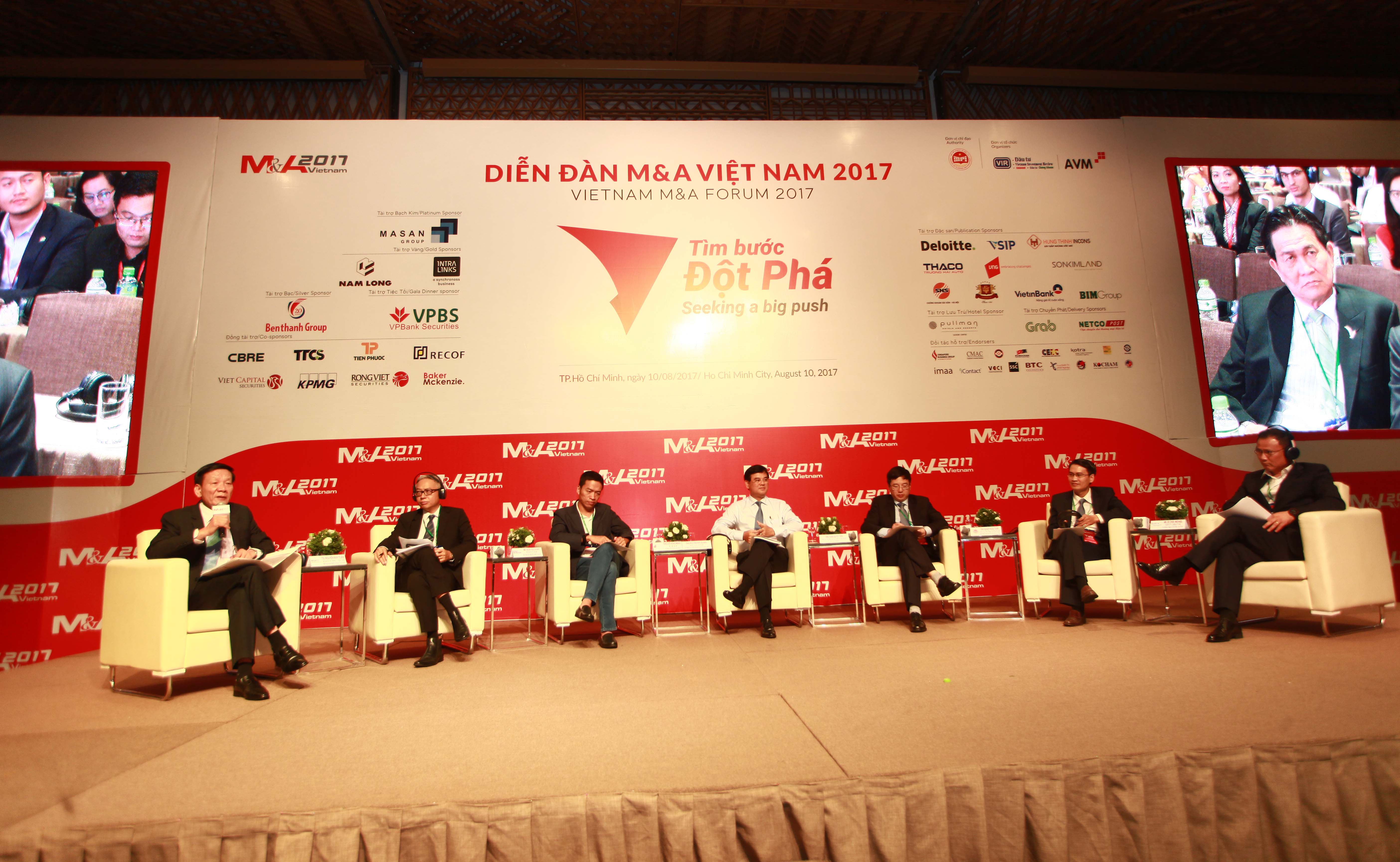
During the first session called “Identifying Breakthrough Opportunities,” the pressing issues of equitising state-owned enterprises (SOEs), state divestment, and the foreign ownership cap have been discussed by representatives from government agencies and leading consultancy firms.
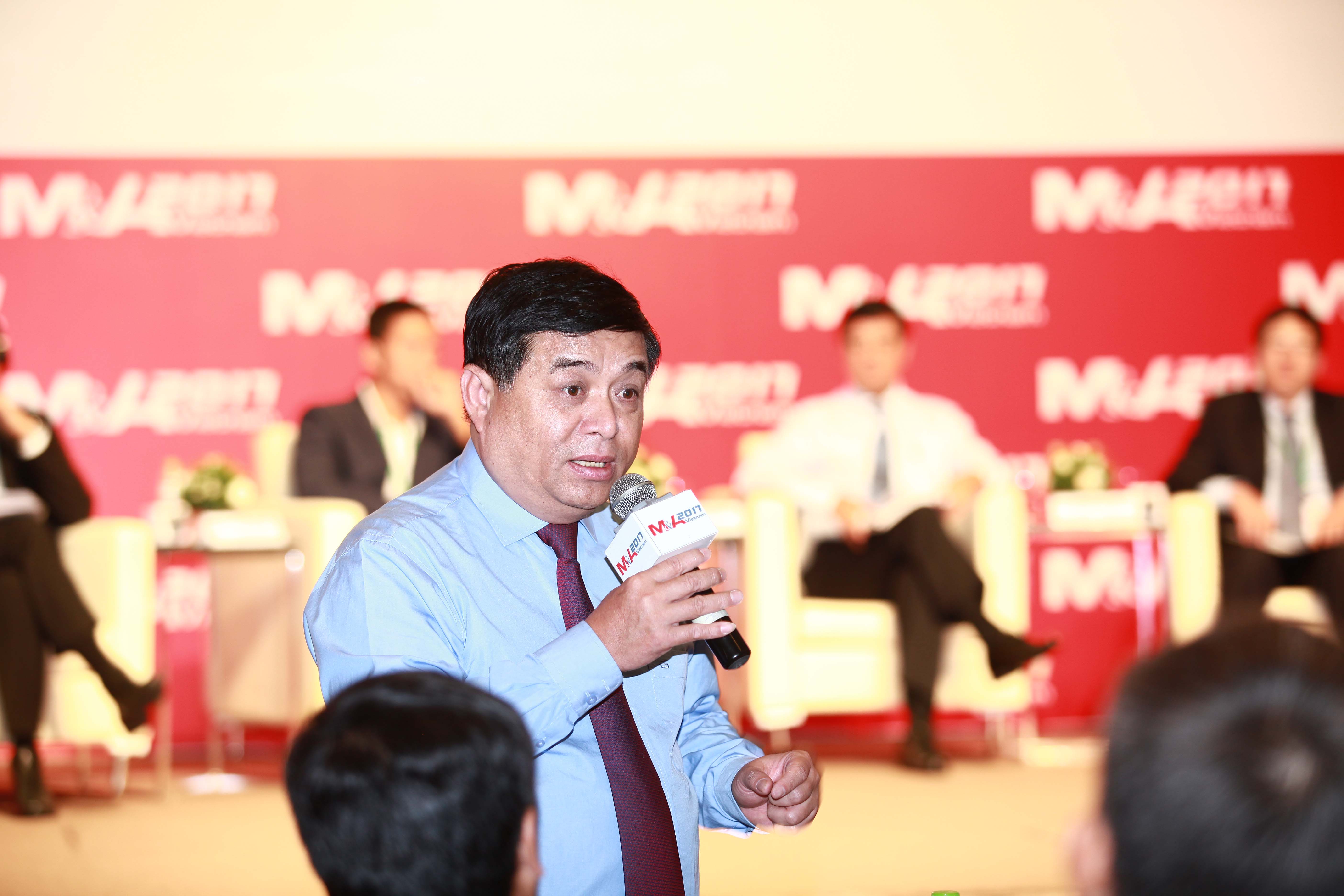
“The Ministry of Planning and Investment understands that Vietnam has to follow international rules if the country wants to attract M&A capital. Policymakers need to respond to investors’ suggestions and give them full support,” said Minister of Planning and Investment Nguyen Chi Dung.
In particular, investors at the forum wanted to know whether they need to finalise all payments before obtaining the investment certificate for an M&A deal. In some transactions, investors do not buy shares from the company itself, but from other shareholders, and are confused whether they need to pay the money to the company or to the shareholders.
Other major themes in the session include the increasing supply of M&A deals from equitised SOEs. New opportunities in the banking sector were also discussed as the new law on bad debts resolution was recently passed in June.
The matter of the foreign ownership limit, which has prevented many investors from entering conditional business sectors, was another highlight of the session.
Dang Quyet Tien, deputy head of the Corporate Finance Department of the Ministry of Finance, answered that the detailed list of SOEs to be equitised has recently been released. The government is also pushing forward with state divestment and is welcoming foreign investors to help restructure weak banks.
To recap the session, policymakers promised that more legal reforms are underway and investors can be assured that Vietnam is trying its best to improve the efficiency and transparency of the M&A market for foreign investors.
|
|
| Nguyen Huu Quang - Deputy Head of the National Assembly's Finance and Budget Committee To push up the process of equitisation, we have to clarify which ones are outstanding and which are hindering this process. During the last 20 years of equitisation, we have achieved many results. Before 2016, equitisation was done quite strongly, however, after that, the process has been slowing down. This, I think, is partly caused by the economic crisis which brings many disadvantages to the financial market. Furthermore, the Vietnamese overnment’s policy on equitisation is not attractive enough for enterprises. Lastly, both enterprise owners and labourers are not aware of the advantages the equitisation could bring about. The issue of evaluating a state-owned enterprise is very important as well, as the potential of land area which the enterprise owns. |
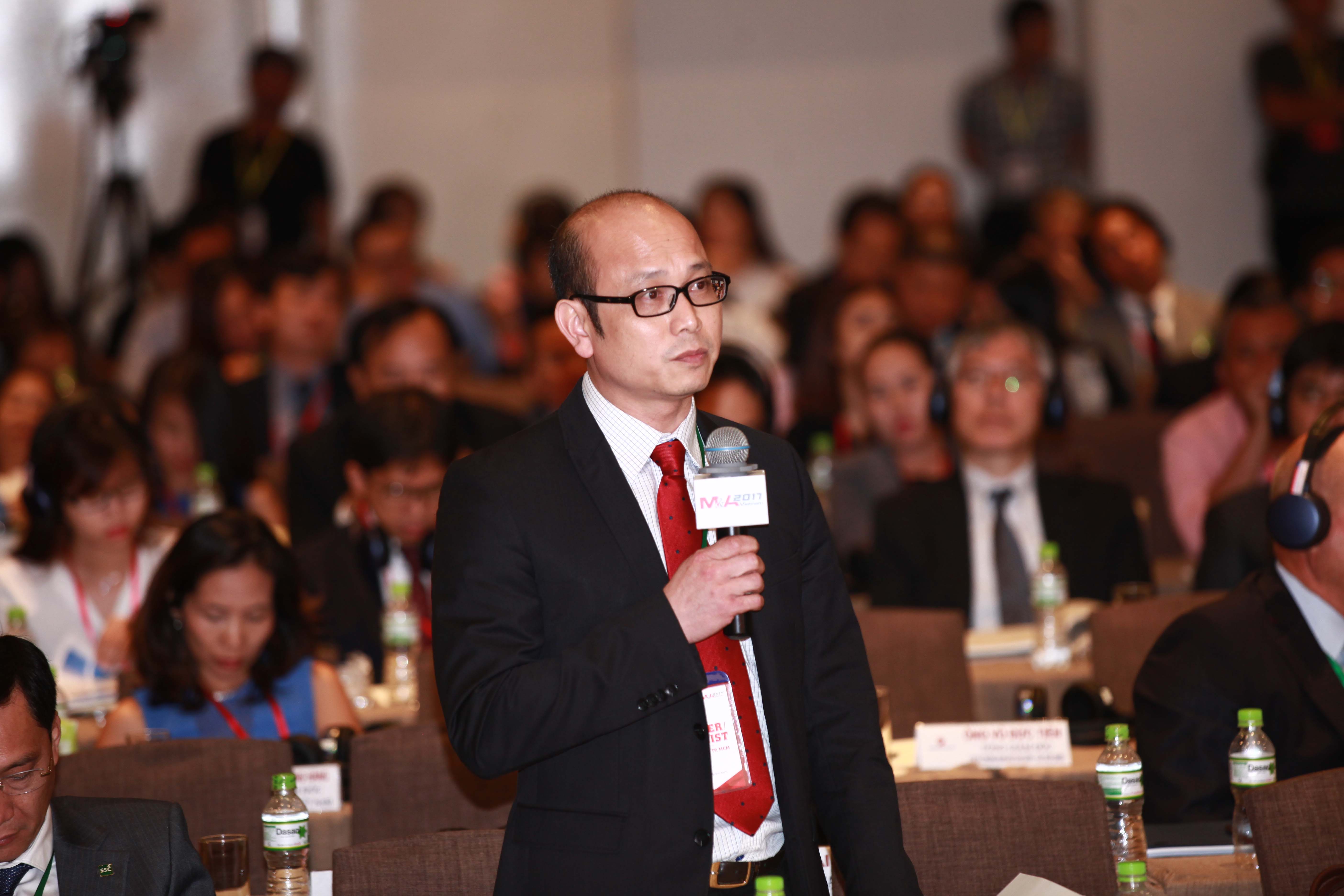 |
| Bui Huy Tho - Director of Banking Inspection and Supervision under the State Bank of Vietnam The National Assembly has recently passed the law on bad debts resolution. This new law will allow financial institutions to sell their collaterals or sell debts under the market value. I believe that the new law will help Vietnamese banks solve their bad debts problems and most importantly, improve their health and attract new M&A partners. In fact, the Vietnamese government welcomes all foreign investors to help restructure struggling banks, and we hope that the M&A market for banks will become livelier following the law on bad debts resolution. In the future, we should probably introduce new laws on banks' private placements and employees' shares, as this is also causing some concern for foreign investors. |
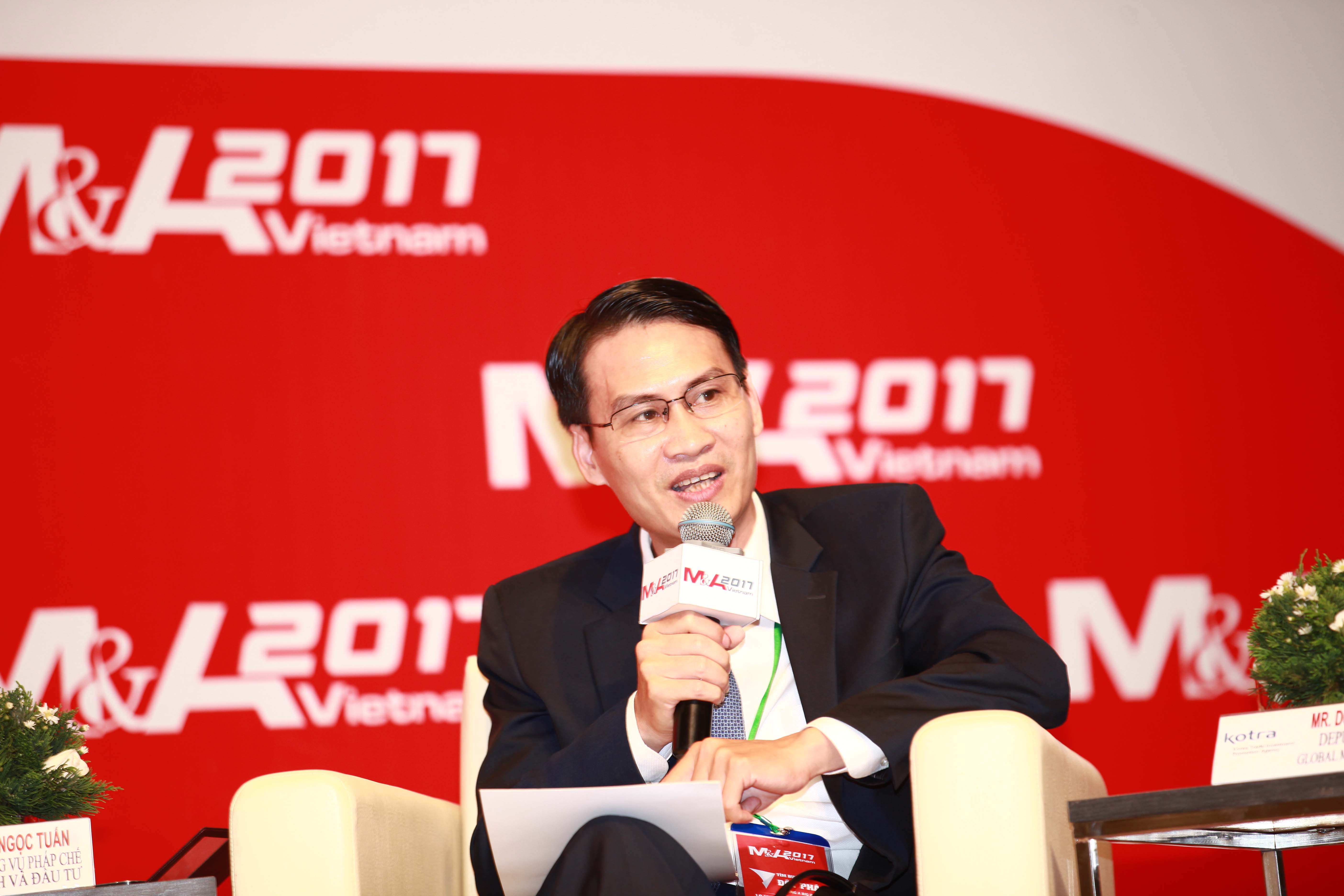 |
| Quach Ngoc Tuan - Deputy director of Legislation Department under the Ministry of Planning and Investment (MPI) MPI has assisted the government in improving the investment climate, especially with the recent implementation of the laws on Investment and Enterprise. We are reviewing legal constraints to propose changes to relevant ministries. One issue that can be changed is that some provincial authorities request foreign acquirers to pay for the deal before adjusting the business registration. For this matter, I believe that the investors only need to submit documents of transfer or contract to state agencies. This regulation has been stipulated in Decree No.78/2013/ND-CP, guiding the Law on Enterprise on enterprise registration.
Seck Yee Chung - Partner of Baker & McKenzie Vietnam has seen the second wave of M&A recently, however, different to the last time, the manufacturing sector has been developing strongly and Vietnam’s competitiveness is no longer based on low-value products. Especially since last year, we have seen many investors from Thailand, South Korea, and Japan. We see that some sectors have been saturated, however, the market remains potential. In the coming time, the legal system will create more favourable opportunities for investors to invest in Vietnam and take part in M&A activities. There are a number of issues which the government should upgrade, such as shortening and simplifying investment registration procedures and making the environment more competitive, especially as Vietnam has joined the WTO. Vietnam has also been very active to be recognised as a market economy, therefore there must be more changes to attract more foreign investors into the country. |
 |
| Le Hong Minh - Founder and chairman of VNG Corporation Vietnam’s bustling technology sector is becoming a magnet for foreign investors. There is a trend of M&A involving local start-ups in the past two years. Vietnamese start-ups have raised around $100 million per year. However, the amount of investment into the sector is modest compared to other neighbouring countries. Southeast Asia has attracted $1.5 billion, 80 per cent of which was poured into Indonesia. In the beginning of 2017, around six companies in Singapore and Indonesia have raised $5 billion of investment, most notably Grab and Go-Jek. Vietnamese companies must know how to position themselves in the local market and attract foreign investors. VNG, in particular, has positioned itself in the overseas market to increase its competitiveness. VNG plans to be listed on a foreign stock exchange to step up its game in the market. |
| RELATED CONTENTS: | |
| Vietnam M&A Forum 2017 underway | |
| Minister of Planning and Investment to open Vietnam M&A Forum 2017 | |
What the stars mean:
★ Poor ★ ★ Promising ★★★ Good ★★★★ Very good ★★★★★ Exceptional
Latest News
More News
- Opella and Long Chau join forces to enhance digestive and bone health (February 06, 2026 | 18:00)
- Vietnam-South Africa strategic partnership boosts business links (February 06, 2026 | 13:28)
- Sun PhuQuoc Airways secures AJW Group support for fleet operations (February 06, 2026 | 13:23)
- Pegasus Tech Ventures steps up Vietnam focus (February 05, 2026 | 17:25)
- The generics industry: unlocking new growth drivers (February 04, 2026 | 17:39)
- Vietnam ready to increase purchases of US goods (February 04, 2026 | 15:55)
- Steel industry faces challenges in 2026 (February 03, 2026 | 17:20)
- State corporations poised to drive 2026 growth (February 03, 2026 | 13:58)
- Why high-tech talent will define Vietnam’s growth (February 02, 2026 | 10:47)
- FMCG resilience amid varying storms (February 02, 2026 | 10:00)

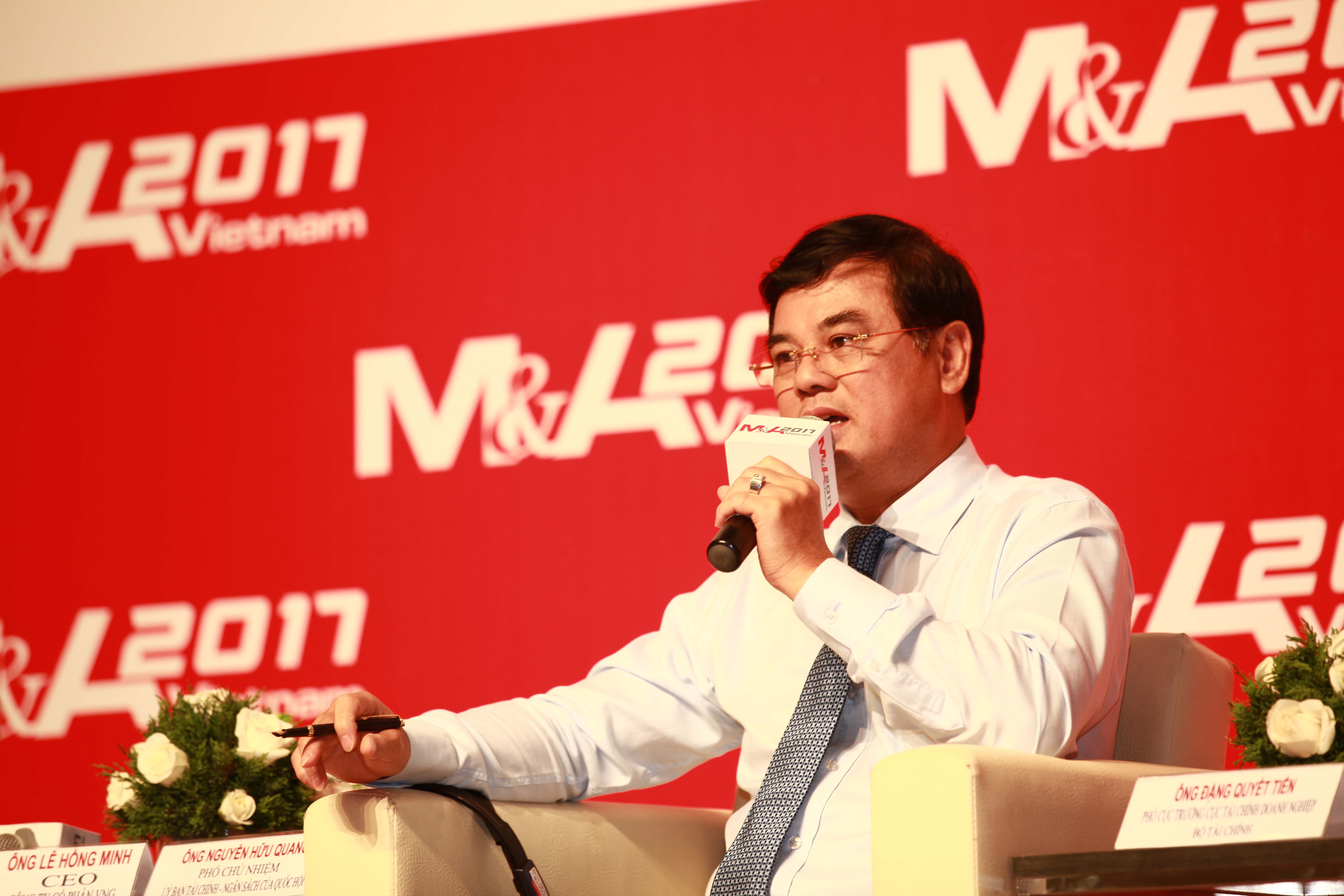
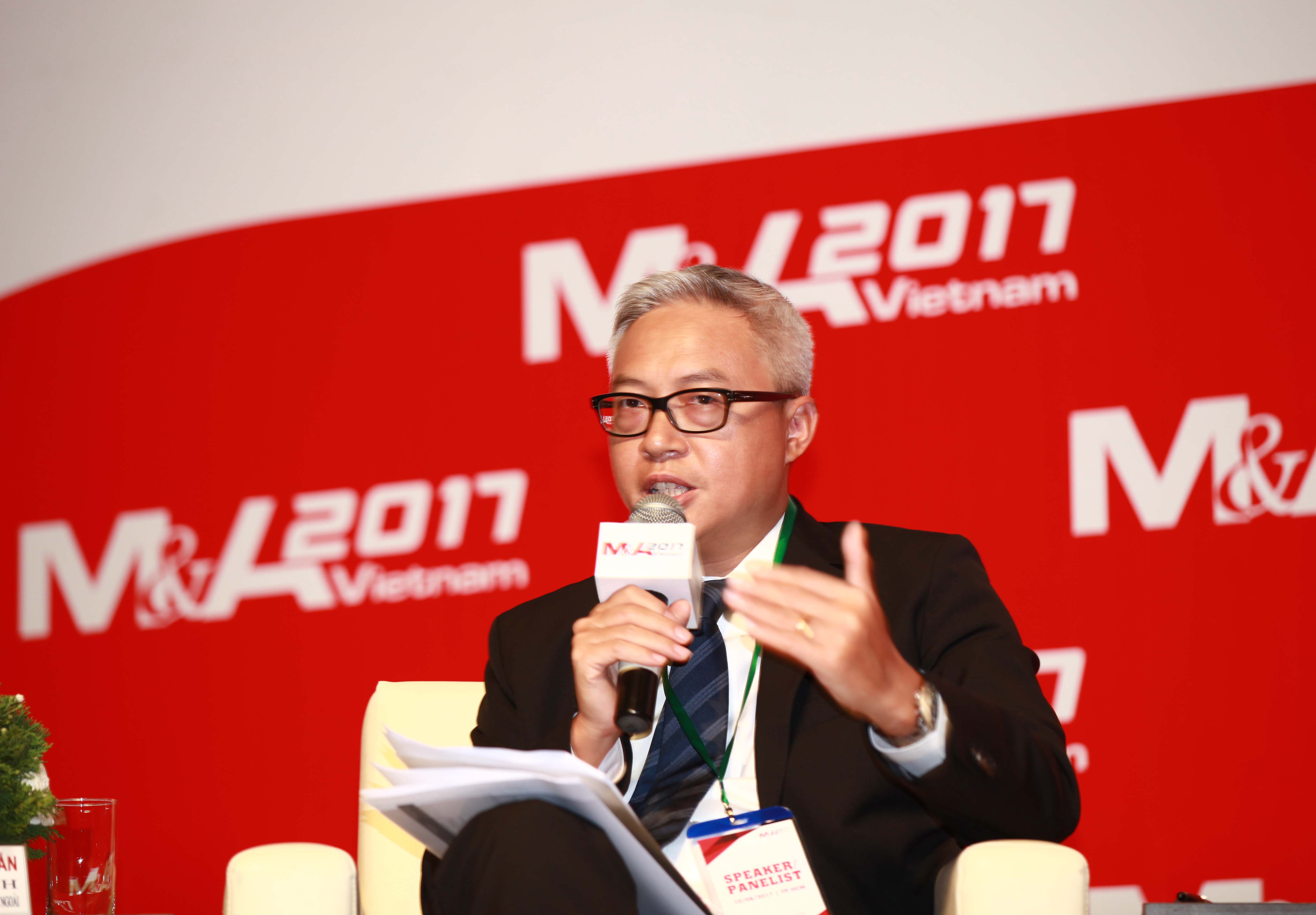















 Mobile Version
Mobile Version